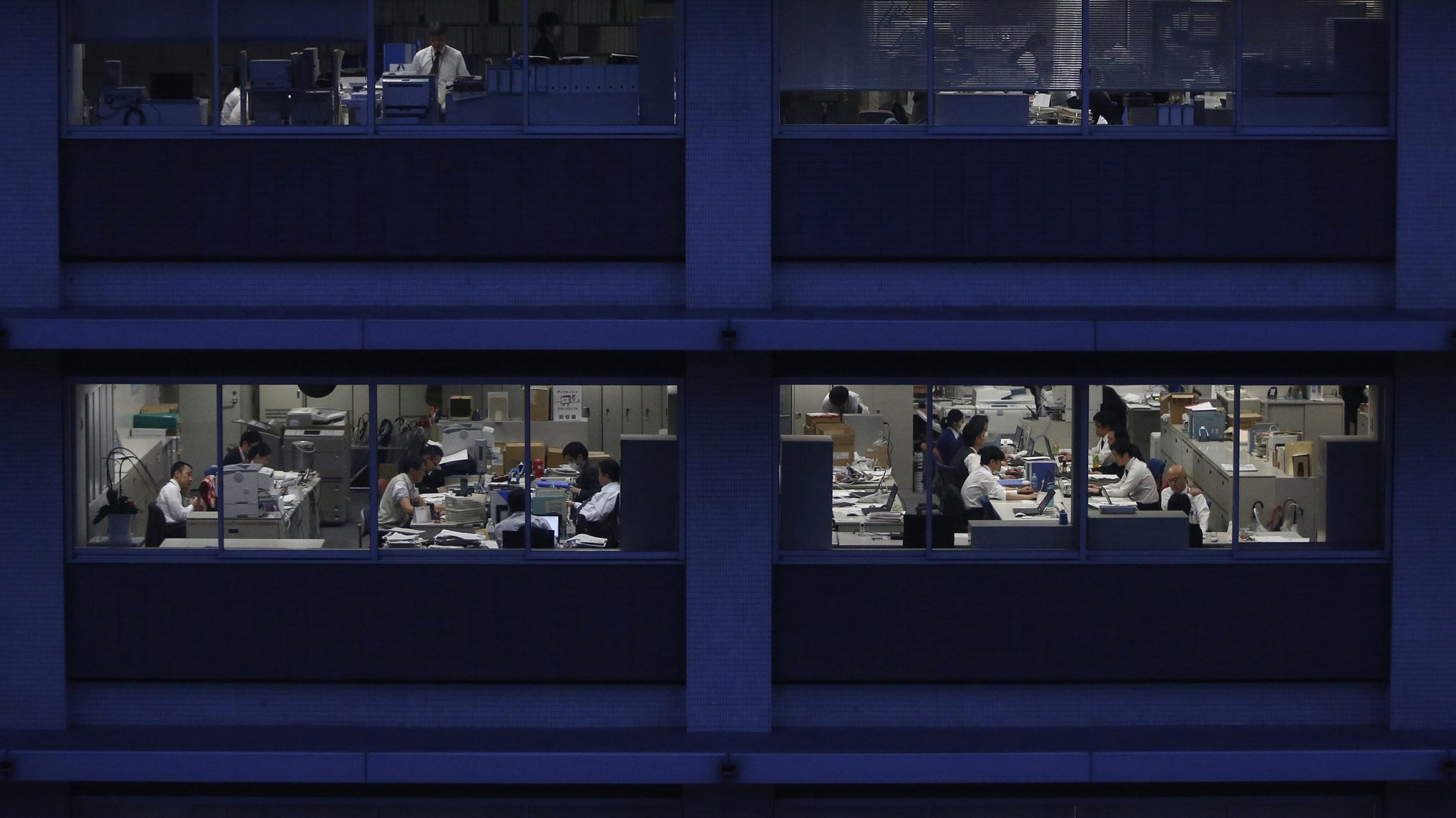In Japan, death-by-overwork is so common it has its own word
The president of Dentsu, a Japanese advertising agency, is resigning after labor officials said a young female employee killed herself last year after being overworked by the firm.


The president of Dentsu, a Japanese advertising agency, is resigning after labor officials said a young female employee killed herself last year after being overworked by the firm.
Matsuhari Takahashi jumped to her death last Christmas after working reportedly more than 100 hours of overtime in a month, triggering depression. Japan’s labor ministry raided Dentsu’s offices in November this year and referred the case to prosecutors today, according to the Japan Times. “We deeply regret failing to prevent the overwork of our new recruit. I offer my sincere apology,” Tadashi Ishii, the president of Dentsu, said at a press conference today.
Death-by-overwork is a growing problem in Japan, where it’s called karoshi. There were a record 1,456 karoshi-related claims in the 12 months ending March 2015, according to a labor ministry data, Reuters reported. Experts says a lack of reliable reporting means the actual figure could be even times higher. Officially defined, karoshi includes both suicides and cardiovascular-related deaths, following periods of intense overtime.
The government has taken notice. In a labor ministry-sponsored study released in October, almost 23% of Japanese companies reported their employees worked more than 80 hours of overtime a month. The information technology and communications industries had particularly grueling schedules.
While there’s nothing new about the emphasis on long hours and face time for traditional office workers—the famed “salaryman”—it’s becoming more acute for temporary employees without contracts, a growing part of the Japanese labor market. Temporary workers are more vulnerable to overwork abuses, since many are promised permanent work with a humane schedule in exchange for proving themselves with punishing hours first, labor activists say.
Temporary employees are now almost 40% of the Japanese workforce, double the amount in 1990. Two-thirds of them are women. Increasing the number of working women in Japan has been viewed as a way to boost the country’s long-stagnant economy, but poor working conditions come with a cost: Work-related suicides are up 39% among women since 2011.
Overwork is by no means only a Japanese problem. Global investment banks have been guilty of pushing their employees past their limits. After the over-work related deaths of young employees and interns at Goldman Sachs, Merrill Lynch and Moelis & Co in New York and London, some firms began limiting their hours. Goldman now “limits” interns to 17 hours a day, and orders them to go home at midnight.